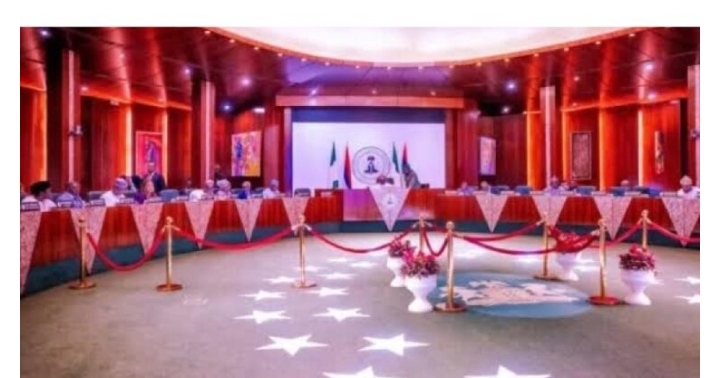Nigeria’s Executive Council Approves Use Of National Anthem Third Stanza As Official Prayer
Additionally, the first stanza will now be rendered at all official functions, while all three stanzas will be reserved for special occasions such as Independence Day, Democracy Day, and Workers’ Day.
The Federal Executive Council of Nigeria has approved the use of the third stanza of the national anthem as a prayer during public events.
Additionally, the first stanza will now be rendered at all official functions, while all three stanzas will be reserved for special occasions such as Independence Day, Democracy Day, and Workers’ Day.
This announcement was made by the Director General of the National Orientation Agency (NOA), Lanre Isa-Onilu, during a press briefing and stakeholders’ meeting at the NOA’s Akwa Ibom State Directorate in Uyo.
He was represented by the Director of Orientation and Behaviour Modification, Madam Tessy Nnalue.
Onilu remarked, “As you may be aware, we have been advocating for a fundamental approach to value orientation and attitudinal change campaigns. Whereas slogans are good for the ear, they do not entrench these values in our hearts.”
He elaborated on the agency’s mandates, which include communicating government policies and mobilising support for them while promoting democracy and values that foster peace and moral conduct.
Onilu noted the agency’s recent proposals to the FEC aimed at entrenching value orientation processes, especially among the youth.
“Many of them deal with young-age indoctrination, providing the template for evaluating the Real Nigerian character. All of the memoranda were approved by the Federal Executive Council,” he stated.
“The Council also approved various measures, including the standardisation of national symbols like the National Flag, Anthem, and Pledge. Onilu shared the specifics of the approval:
1. The first stanza of the National Anthem will be rendered at all official functions, while the three stanzas will be for special occasions.
2. The third stanza of the National Anthem will be adopted as a national prayer.
3. The NOA will serve as the custodian of the national symbols to ensure standardisation.
4. September 16 will be observed as a national symbol of enlightenment day.
5. The NOA will promote respect for these symbols and proper display, fostering national identity and pride.”
Onilu highlighted the unveiling of the National Values Charter, which will be included in the curriculum for schools and will mandate the teaching of the charter during pre-resumption retreats for government officials.
He also mentioned the establishment of a National Values Brigade in schools to cultivate model citizens.
“The FEC approved measures to promote local content in cartoons to break the dominance of foreign animations, fostering national values and culture. Furthermore, the agency plans to rebrand the War Against Indiscipline Brigade to the Citizens Value Brigade to reflect a more democratic approach.
“Value Orientation will now be a compulsory part of the National Youth Service programme, with the NOA working alongside the NYSC to instil national values in fresh graduates.”
Mallam Onilu noted that the agency had adopted new communication strategies to engage citizens effectively, especially the youth, who predominantly consume media differently today. “The communication world is evolving daily,” he said.
He introduced the NOA’s AI Voice/Chat Assistant, CLHEEAN, designed to facilitate communication on various thematic issues and help individuals seek information about the government. New tools, including the ‘Explainer Newsletter’ and the Mobiliser App, are also in place to enhance citizen engagement.”
Onilu concluded by outlining the government’s initiatives aimed at addressing economic and social challenges, such as the Student Loan Scheme and the Nigeria Youth Investment Fund, which together aim to empower Nigerian youth and drive economic growth.



























